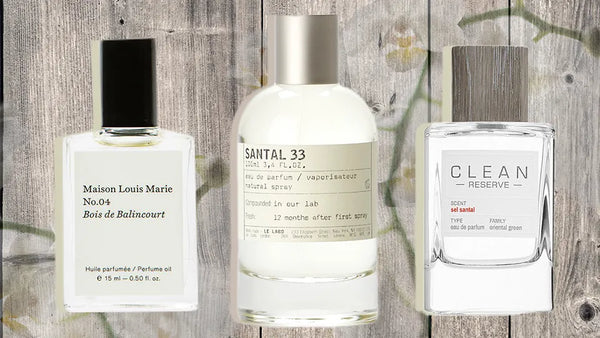Can Fragrance be Used To Boost memory?

In our quest to enhance memory and cognitive function, we often overlook the power of our sense of smell. While we are well aware of the impact that visuals and sounds can have on our memory, the olfactory connection to memory is often underestimated. This article aims to explore the potential of fragrance in boosting memory and understanding the science behind this fascinating link.
Understanding the Connection Between Smell and Memory
Our ability to recall specific memories based on scent is not simply a coincidence. There is a scientific connection between smell and memory, known as olfactory memory. The olfactory bulb, which is responsible for our sense of smell, is closely connected to the amygdala and hippocampus, the areas of the brain associated with emotions and memory formation.
When we smell something, the molecules of the scent bind to receptors in the olfactory epithelium. These receptors then send signals to the brain, triggering the release of neurotransmitters associated with memory and emotions. This process strengthens the neural pathways between the scent and the memory, resulting in a strong connection that can be retrieved later through the sense of smell.
The Science Behind Olfactory Memory
Scientists have conducted numerous studies to explore the fascinating link between smell and memory. One study published in the Journal of Neuroscience found that participants who were exposed to a specific scent while learning new information performed better in memory tests when the same scent was present during recall. This suggests that the scent acted as a powerful cue, facilitating the retrieval of memories.
Another study conducted at the University of California, Berkeley, discovered that certain scents can even enhance the consolidation of memories during sleep. Participants who were exposed to a particular fragrance while learning a new task showed improved performance after a night of sleep compared to those who were not exposed to the scent. This research highlights the potential of using scent as a tool for memory enhancement.
Historical Evidence of Scent-Induced Memory Enhancement
The use of fragrance to enhance memory is not a recent discovery. Ancient civilizations, such as the Egyptians and Greeks, understood the power of scent and utilized it in various rituals and therapies. The use of aromatic substances, such as incense, during religious ceremonies was believed to stimulate memory and facilitate spiritual connection.
In more recent history, soldiers during World War I used the scent of violet to overcome the trauma of gas attacks. The fragrance served as a trigger to bring back positive memories, counteracting the negative associations with the gas.
Furthermore, the field of aromatherapy has gained popularity in recent years, with practitioners using specific scents to promote relaxation, improve focus, and enhance memory. Essential oils derived from plants, such as rosemary and lavender, are often used for their memory-boosting properties.
It is important to note that while scent-induced memory enhancement shows promising results, individual experiences may vary. Factors such as personal associations with scents and individual brain chemistry can influence the effectiveness of olfactory memory triggers.
In conclusion, the connection between smell and memory is a fascinating area of study. Through the intricate network of the olfactory bulb, amygdala, and hippocampus, scents have the power to evoke vivid memories and emotions. Whether through ancient rituals, wartime experiences, or modern scientific research, the impact of scent on memory is undeniable. Exploring this connection further may lead to innovative approaches in memory enhancement and therapeutic interventions.
Different Fragrances and Their Effects on Memory
Various fragrances have been studied for their effects on memory retention and cognitive function. Let's explore some of the most notable fragrances and their specific benefits.
Lavender and Memory Retention
Lavender is a well-known scent associated with relaxation and sleep. Studies have shown that the aroma of lavender can improve memory retention, especially when used during sleep. Diffusing lavender essential oil in the bedroom or using lavender-scented pillows can aid in memory consolidation during sleep.
Not only does lavender have a calming effect on the mind and body, but it also has the power to enhance memory. The soothing scent of lavender activates the brain's alpha waves, which are associated with relaxation and improved focus. By promoting a state of calmness, lavender helps to reduce stress and anxiety, allowing the brain to better retain and recall information.
Furthermore, lavender has been found to have a positive impact on emotional well-being. Its aroma has been shown to reduce negative emotions, such as sadness and depression, which can hinder memory and cognitive function. By creating a more positive and relaxed state of mind, lavender helps to optimize memory retention.
A great lavender centric fragrance to try is Sunday Cologne by Byredo.
Rosemary and Increased Concentration
Rosemary has long been associated with memory enhancement. The scent of rosemary has been shown to improve cognitive performance and focus. Inhaling rosemary essential oil or using rosemary-scented candles while studying or working can increase concentration and aid in memory recall.
The aromatic compounds found in rosemary have a stimulating effect on the brain, promoting mental alertness and enhancing memory. Inhaling the scent of rosemary triggers the release of neurotransmitters that improve cognitive function, including memory retention and concentration.
Additionally, rosemary contains antioxidants that protect the brain from oxidative stress, which can impair memory and cognitive abilities. By reducing oxidative damage, rosemary helps to maintain the health of brain cells, ensuring optimal memory performance.
A perfume you can try that contains rosemary and a selection of other notes is Colonia by Acqua di Parma.
Peppermint and Alertness Boost
The invigorating scent of peppermint has been found to enhance alertness and improve cognitive function. Inhaling peppermint aroma or using peppermint-infused products, such as candles or room sprays, can help in situations requiring heightened mental focus, such as exams or important meetings.
Peppermint has a refreshing and stimulating effect on the mind, making it an excellent choice for boosting alertness and mental clarity. The scent of peppermint activates the brain's arousal system, increasing wakefulness and improving cognitive performance.
In addition to its stimulating properties, peppermint has been shown to have positive effects on mood and stress levels. By reducing feelings of fatigue and anxiety, peppermint helps to create an optimal mental state for memory retention and recall.
Furthermore, the aroma of peppermint has been found to increase oxygen levels in the brain, which is essential for optimal cognitive function. By improving oxygen delivery to the brain, peppermint enhances mental alertness and supports memory consolidation.
How to Use Fragrance for Memory Boosting
Now that we understand the potential benefits of fragrance in memory enhancement, let's explore some practical ways to incorporate scent into our daily routines.
One effective technique for using fragrance to boost memory is through the practice of aromatherapy. Aromatherapy involves the use of essential oils, which can be diffused, used in massage, or inhaled to promote various health benefits, including memory improvement. The olfactory system, which is responsible for our sense of smell, is closely linked to the brain's limbic system, which plays a crucial role in memory and emotion. By harnessing the power of scent, we can stimulate the limbic system and enhance our memory retrieval processes.
When it comes to aromatherapy for memory enhancement, it's important to experiment with different essential oils to find the scents that work best for you. Some popular essential oils known for their memory-boosting properties include rosemary, peppermint, lemon, and lavender. Rosemary, for example, has been shown to enhance memory and cognitive performance, making it a great choice for studying or any activity that requires mental focus. Peppermint, on the other hand, is known for its invigorating and stimulating effects, which can help improve alertness and memory retention.
Aromatherapy Techniques for Memory Enhancement
Aromatherapy is an effective way to harness the power of fragrance for memory improvement. The use of essential oils through diffusion, massage, or inhalation can facilitate memory retrieval and promote a focused state of mind. Experiment with different essential oils to find the scents that work best for you.
In addition to diffusing essential oils, you can also incorporate them into your daily routine through massage. Massaging essential oils into your skin not only allows for absorption into the bloodstream but also provides a sensory experience that can enhance memory recall. Choose a carrier oil, such as sweet almond or jojoba oil, and add a few drops of your chosen essential oil. Massage the mixture into your temples, wrists, or any other pulse points to enjoy the memory-boosting benefits.
Inhalation is another effective method for using fragrance to enhance memory. You can inhale essential oils directly from the bottle or add a few drops to a tissue or handkerchief to carry with you throughout the day. Inhaling the scent of certain essential oils can help stimulate brain activity and improve memory performance. Consider creating a personal inhaler by adding a few drops of your preferred essential oil to a small, portable inhaler tube. This way, you can easily access the scent whenever you need a memory boost.
Incorporating Scent into Study Routines
When studying or preparing for exams, using specific fragrances can help create a memory association with the information being learned. Try using a specific scent while studying and then re-introduce the same fragrance during the exam. This can help trigger the memory recall associated with that scent and aid in retrieving the information more easily.
Creating a study routine that incorporates scent can be as simple as using a scented candle or essential oil diffuser in your study area. By consistently using the same fragrance during study sessions, your brain will begin to associate that scent with the information being learned. When it comes time to recall the information during an exam, reintroducing the same scent can serve as a powerful cue, triggering the memory recall associated with that particular scent.
In addition to using fragrance during study sessions, you can also explore other sensory techniques to enhance memory retention. For example, playing background music that is associated with positive memories or using specific textures, such as a soft blanket or textured pen, can create multisensory associations that aid in memory recall. The more sensory cues you can incorporate into your study routine, the more likely you are to enhance your memory and improve information retrieval.
Potential Risks and Limitations of Using Fragrance for Memory
While fragrance can be a powerful tool in memory enhancement, it is essential to be mindful of potential risks and limitations.
Memory is a complex cognitive process that involves various factors, and relying solely on fragrance may not guarantee optimal results. It is important to consider the following risks and limitations when using fragrance for memory improvement:
Allergies and Sensitivities to Certain Scents
Some individuals may have allergies or sensitivities to specific fragrances. It is crucial to be aware of any potential allergic reactions or adverse effects that certain scents may cause. Before incorporating a new fragrance into your memory-enhancing routine, it is advisable to conduct a patch test on a small area of your skin to ensure there are no negative reactions. Additionally, consider using natural and pure essential oils, as they are less likely to cause irritation or allergic responses.
Furthermore, it is essential to be considerate of others' sensitivities when using fragrance in shared spaces. What may be pleasant to one person could be overwhelming or even trigger allergic reactions in another. Always be mindful of the environment and the people around you when using fragrances for memory enhancement.
Over-reliance on Fragrance for Memory Boosting
While fragrance can aid in memory retrieval, it is crucial to cultivate overall memory-boosting habits. Relying solely on scent may not be sufficient for optimal memory function. While fragrance can serve as a powerful cue for memory recall, it is important to combine it with other memory-enhancing strategies.
Active learning techniques, such as practicing recall and elaborative encoding, can significantly improve memory retention. Engaging in regular exercise has also been shown to have a positive impact on memory and cognitive function. Additionally, maintaining a healthy lifestyle, including a balanced diet and sufficient sleep, is vital for supporting overall brain health and memory improvement.
By incorporating a combination of strategies, you can create a comprehensive approach to memory enhancement that goes beyond relying solely on fragrance.
It is worth noting that individual responses to fragrance may vary. While some people may experience significant memory improvements with the use of fragrance, others may not notice the same level of enhancement. Factors such as personal preferences, previous experiences, and individual brain chemistry can influence the effectiveness of fragrance for memory enhancement.
In conclusion, while fragrance can be a valuable tool for memory enhancement, it is important to be aware of potential risks and limitations. Taking precautions for allergies and sensitivities, as well as incorporating a variety of memory-boosting strategies, can help maximize the benefits of fragrance for memory improvement.
Case Studies and Research on Fragrance-Induced Memory Enhancement
Several studies have been conducted to explore the effectiveness of fragrance in memory improvement. Let's delve into some notable research findings.
Notable Studies and Their Findings
A study published in the journal Neuroscience found that the scent of rosemary can enhance prospective memory and cognitive performance. Participants exposed to the aroma of rosemary demonstrated improved memory for future events and increased alertness.
Ongoing Research in the Field
Researchers continue to investigate the potential of fragrance in memory enhancement. Ongoing studies are exploring the effects of different scents on specific memory functions and developing new ways to harness the power of olfactory memory.
In conclusion, fragrance can indeed be used to boost memory and enhance cognitive function. By understanding the connection between smell and memory, exploring the effects of different fragrances, and incorporating scent into our daily routines, we can tap into the power of olfactory memory. However, it is important to be aware of potential risks and limitations and to combine fragrance usage with other memory-improving strategies. As research in this field progresses, we may unlock even further potential for fragrance-induced memory enhancement.




